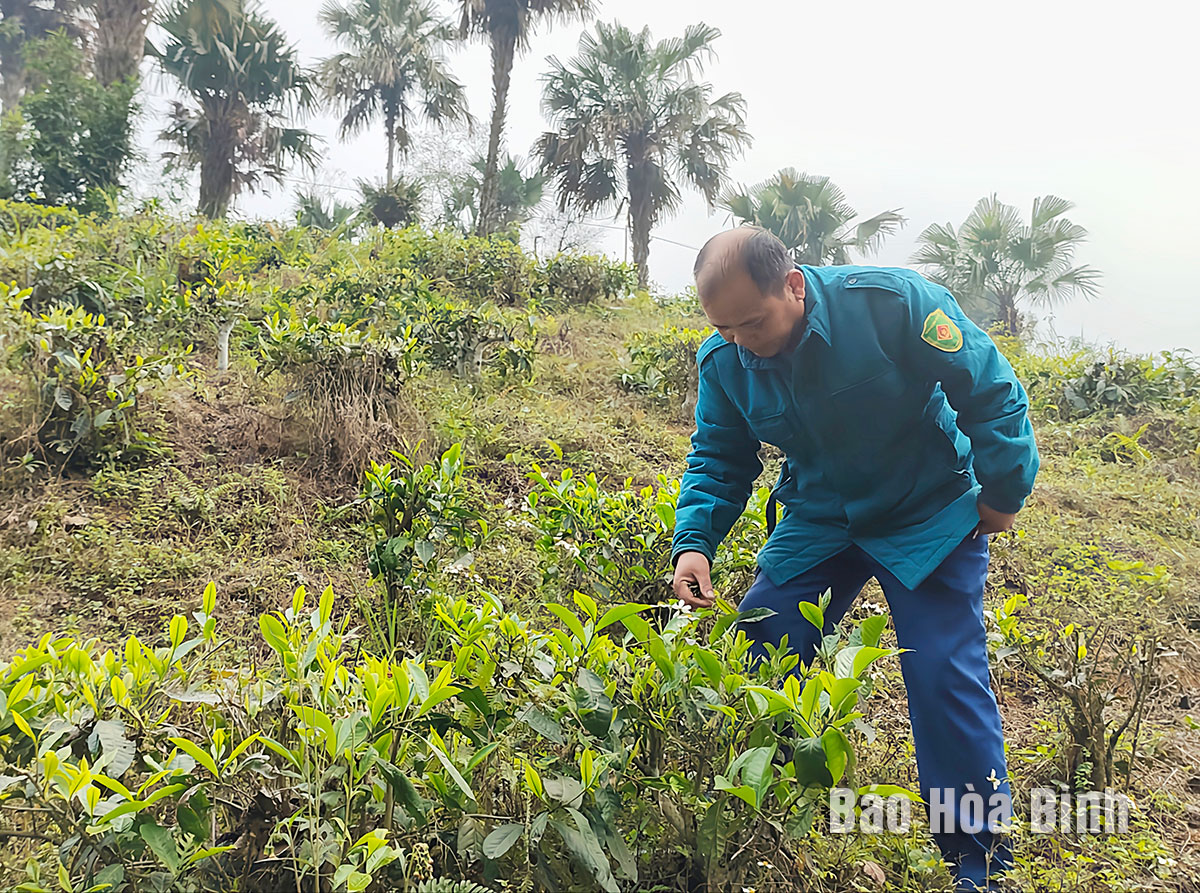
Da Bac district has advantages to grow tea, especially when the tea grown in this area is famous for high quality. However, facing difficulties in finding market for tea products, farmers in the district are not interested in growing tea.
People in Trung Thanh commune, Da Bac district are no longer interested in growing tea.
Trung Thanh commune used to be one of the key tea-growing area in Da Bac district. In December 2016, the commune has over 40 ha of tea where farmers could harvest regularly. However, poor transport infrastructure and a lack of processing facilities hindered the tea production in the commune.
In 2019, Nam Phuong Tea Production Cooperative was established in the commune, partly solved the issue of consumption for the commune’s tea products and facilitating the development of the Trung Thanh Shan Tuyet tea brand.
In 2021, Trung Thanh Shan Tuyet tea was certified as a 3-star One Commune-One Product (OCOP) product of Hoa Binh province. However, the Nam Phuong cooperative has stopped operation for various reasons.
Luong Van Thai, Permanent Deputy Secretary of Trung Thanh commune Party Committee said that the commune has over 60 ha of tea but due to difficulties in finding markets for their products, many households do not invest in taking care of the tea.
Not only in Trung Thanh, but also in some other tea-growing communes in Da Bac district, tea farming faces many difficulties. Seeing the problem, the district People's Committee has issued a plan on sustainable development of multi-value tea trees in the district in the 2024 – 2030 period.
The district aims to have a stable tea area of about 128.8 ha by 2030, with an average fresh tea bud yield of 36.49 quintals per ha, and an estimated output of 470 tonnes. It strives to apply integrated plant health management (IPHM) and good and safe production processes such as GlobalGAP, VietGAP, and organic farming on over 80% of the tea-growing area.
Over 20% of tea leaves will be deeply processed and all of the concentrated tea areas will be managed properly, granted growing area codes, and ensure origin traceability.
To achieve these goals, Vice Chairman of the People's Committee of Da Bac district Nguyen Thanh Tuan said that in the coming time, the district will persuade local farmers to shift from small-scale, household production to cooperatives, and increase production linkages to form commodity production areas.
The district will continue to study and identify suitable land areas to develop concentrated tea-growing areas to attract businesses. It will also pay attention to restoring and preserving the genetic sources of indigenous tea varieties and planting new high-quality varieties.
Playing a key role in Hoa Binh province’s economic development, Luong Son district has been focusing on science and technology development, innovation, and digital transformation.
Identifying the application of online public services as a key step in administrative procedure reform and e-government building, Kim Boi district has proactively provided services and supported residents and businesses in accessing and utilising full-process online public services promptly and efficiently. The locality aims to lift the rate of end-to-end online public services to over 90%, with all officials and civil servants handling tasks in the digital environment.
Nguyen Anh Tuyet, hailing from a family steeped in the ancient art of herbal medicine, is transforming local medicinal herbs into high-value concentrated extracts, elevating their worth and healing potential.
Nguyen Phi Long, an alternate member of the Party Central Committee, Secretary of the Hoa Binh provincial Party Committee, and head of the steering committee for the province's key projects, chaired a conference on March 25 to discuss measures for implementing the project on constructing the Hoa Lac - Hoa Binh road and upgrading the Xuan Mai - Hoa Binh section of National Highway 6 under the public-private partnership (PPP) model.
Administrative reform has been identified as a key priority in enhancing state governance, improving the business environment, and facilitating services for citizens and enterprises.
The Standing Board of the Hoa Binh provincial Party Committee met on March 18 to review and guide major investment projects aimed at boosting local socio-economic development.



